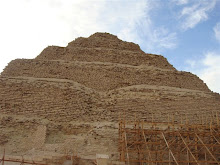Saturday, 31 December 2011
Monday, 12 December 2011
Geminids meteor shower
The Geminids meteor shower should reach peak activity around the 13th and 14th December.
Conditions this year are not ideal with the presence of a waning gibbous moon, but it may still be possible to spot some shooting stars. Geminid meteors are often slow and bright with coloured trails which can linger for a while after the meteor has burned up.
The object that created the stream of debris associated with the Geminids is not a comet, but a rocky asteroid called Phaethon 3200, part of a group of asteroids whose orbits cross that of the Earth.
Tuesday, 6 December 2011
New planet found in hunt for earth's twin
A planet within the "habitable zone" of a star has been discovered.
Named Kepler-22b, it has a radius that is roughly 2.4 times that of earth and is positioned in a 290-day orbit of a star, which means water - and possibly life - could exist on its surface.
Scientists have yet to explore the planet's surface to find it is made of rock, liquid or gas.
Douglas Hudgins, Kepler program scienists at NASA, called the discovery "a major milestone on the road to finding Earth's twin."
The Kepler mission has found more than 1,000 new potential planets, ten of which are near earth size and orbit in the habitable zone of their host star.
Subscribe to:
Comments (Atom)

